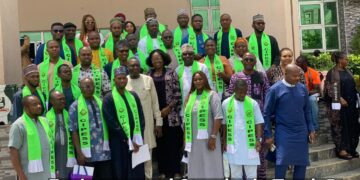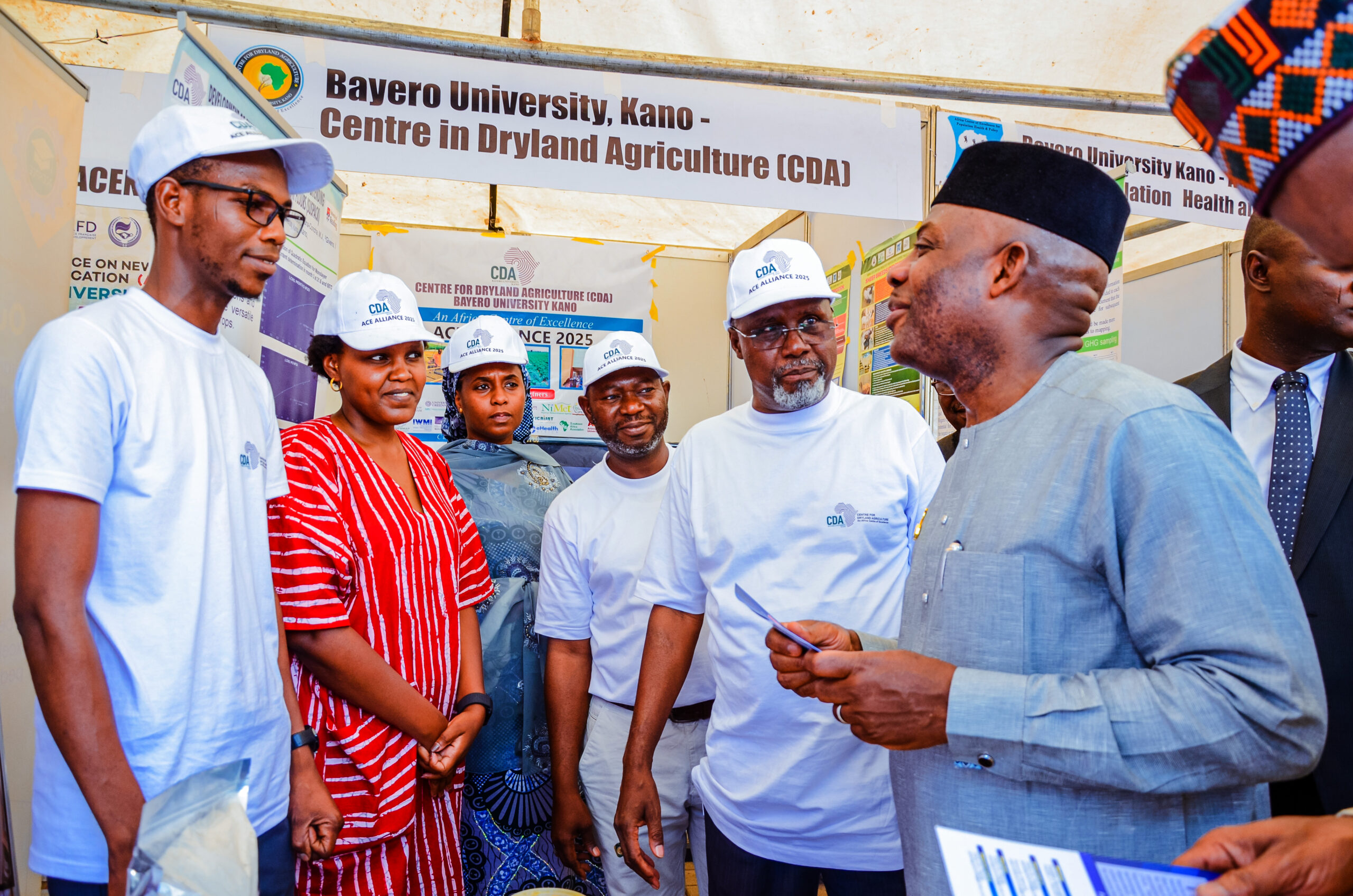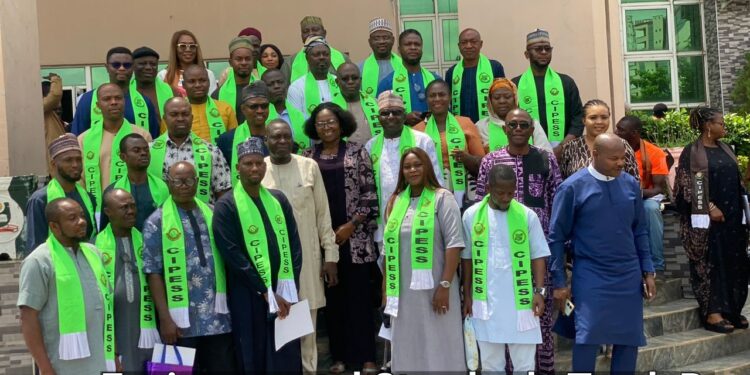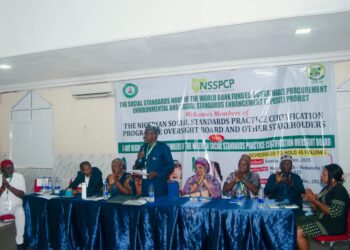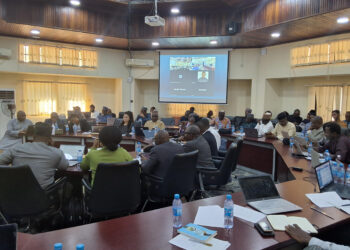by Prof. Lami A. Nnamonu and Uche Michael A.
The Centre for Innovation in Procurement, Environmental, and Social Standards (CIPESS) at Joseph Sarwuan Tarka University, Makurdi (JOSTUM), formerly known as the Federal University of Agriculture, Makurdi (FUAM), is one of six Centres of Excellence hosted by six federal universities in Nigeria, one in each geopolitical zone under the World Bank’s Sustainable Procurement, Environmental, and Social Standards Enhancement (SPESSE) Project.
The hosting bid for the SPESSE Project was won in 2019 in a keen contest among federal universities on a bedrock of strong support and encouragement from Professor Anande R. Kimbir, the then Vice-Chancellor of the university.
Undeterred by delayed project effectiveness, CIPESS commenced active training with short courses on 17 January 2022 and has successfully rolled out five professionalisation tracks (programmes) in the fields of Procurement, Environmental and Social Standards. These are Short Executive Courses (Track A), Advanced Certificate Courses (Track B), Postgraduate Diplomas (Track C), Master of Science programmes (Track D) and Bachelor of Science programmes (Track E). Doctorate programmes will be mounted later in the project.
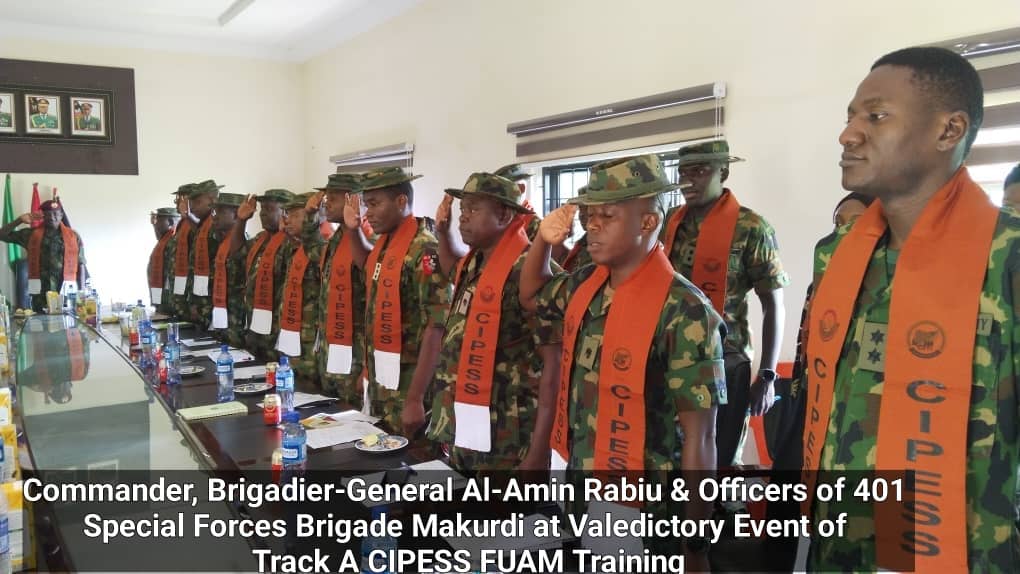
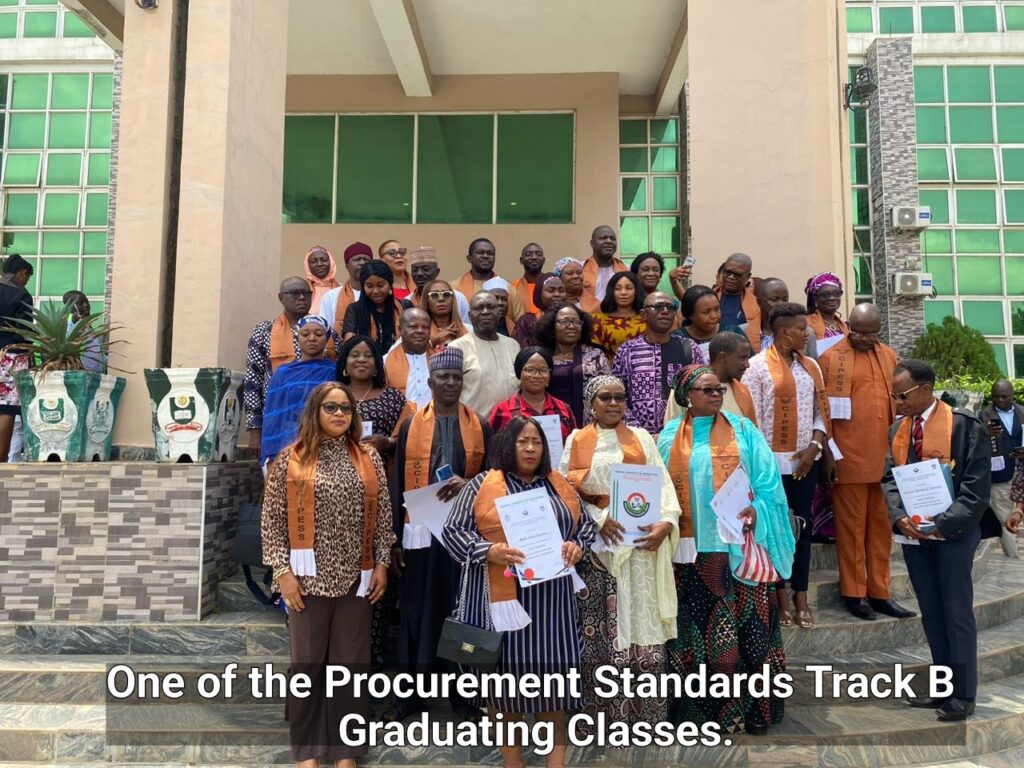
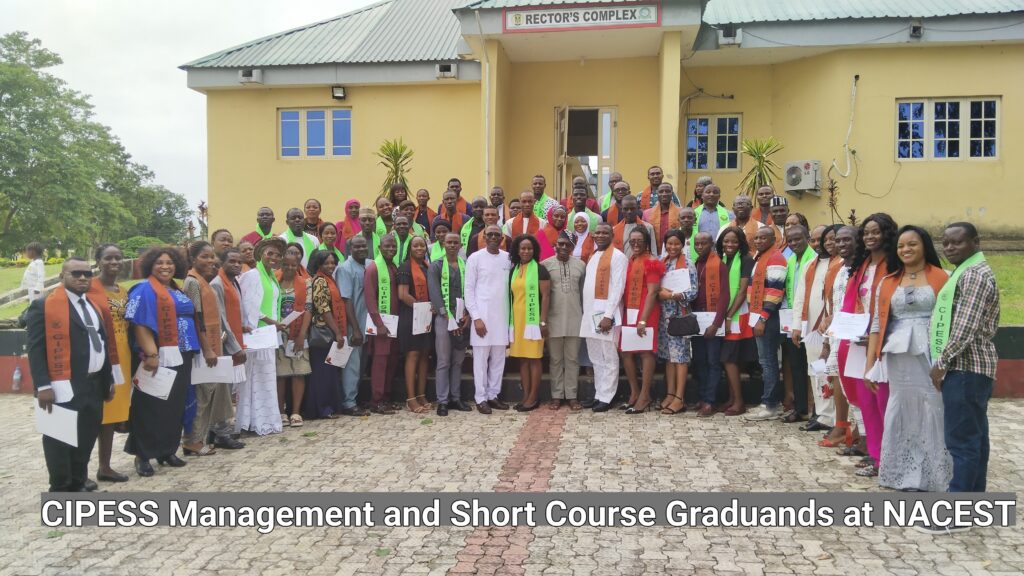
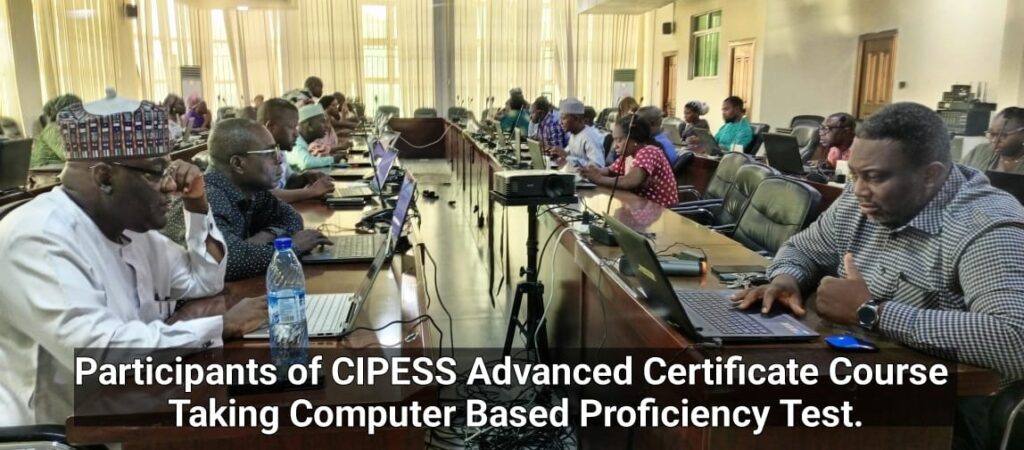
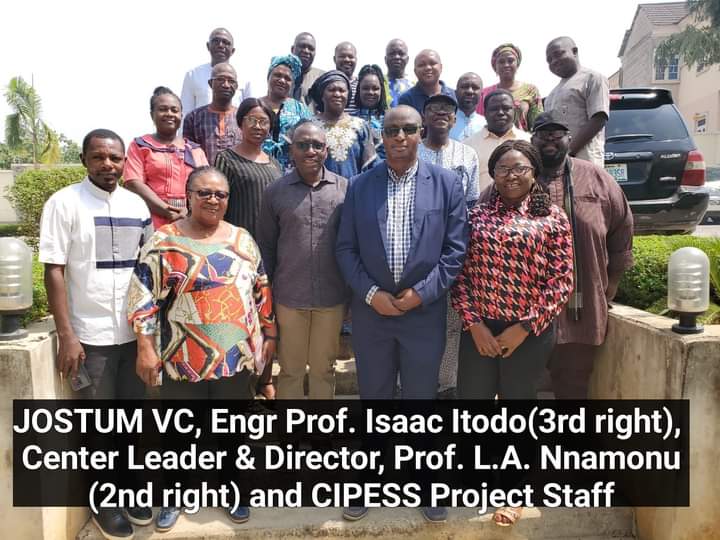
One of the guiding principles of CIPESS is encapsulated in the words of famous plastic and reconstructive surgeon, Jack Penn, “One of the secrets of life is to make stepping stones out of stumbling blocks.” With no good roads, no airport, and with stories of insecurity in the Benue region, it appeared like a tall order for CIPESS to carry out the SPESSE project training and make a success of it. However, realising its strategic position as a hub for the entire North Central geopolitical zone, CIPESS made moves to take the training to the other six states in the zone, rather than remain in its comfort zone and remain trapped within the confines of Benue State. Before long, study outlets were established in Lafia and Keffi in Nasarawa State, Jos, Plateau State and the Federal Capital Territory, Abuja, in partnership with other educational institutions. These study outlets are fully operational, while plans have crystallised to establish study centres in Minna, Niger State, Lokoja, Kogi State and Ilorin, Kwara State, before the end of the year.
CIPESS steadily continues to meet the SPESSE Project’s objective of producing a critical mass of professionals in the three components with its customised and “on-request training scheme.” So far, the Centre has successfully trained staff of the Federal Capital Development Authority (FCDA), Nigeria Army College of Environmental Science Technology (NACEST), Makurdi, the 401 Special Forces Brigade, Makurdi, and the Benue State Civil Service, among others. It has trained other civil and public servants, members of the organised private sector, non-governmental and faith-based organisations as well as a good number of unemployed persons.
Realising that Procurement takes up about 66% of the SPESSE Project’s allocation, CIPESS has left no stone unturned in sourcing the best hands to deliver training in procurement management. With seasoned professionals such as the Executive Secretary of the Tertiary Education Trust Fund (TETFund), Arc. Sunday Echono, and the premier Director-General of the Bureau of Public Procurement (BPP), Engr Dr Emeka Ezeh, CIPESS is certainly not compromising on delivering only the best.
Realising that “One finger cannot lift a pebble”, according to a Hopi proverb, CIPESS has established strategic partnerships with domestic and international academic institutions as well as the corporate and governmental sectors. Top international partners include the Norwegian University of Life Sciences, Massachusetts Institute of Technology, Cranfield School of Management, Cranfield University, United Kingdom, University of Groningen, Netherlands, George Mason University Virginia, USA, and the University of Swansea UK.
Within Nigeria, CIPESS maintains strong partnerships with Benue State University (BSU), Makurdi, Manufacturers Association of Nigeria (MAN), Rural Access and Agricultural Marketing Project (RAAMP), Benue Chamber of Commerce and Industries (BECCIMA), and the University of Lagos. Other partners include Ahmadu Bello University (ABU), Zaria, University of Benin (UNIBEN), Federal University of Technology, Owerri (FUTO), and Abubakar Tafawa Balewa University (ATBU), Bauchi. The Nigerian Environmental Study and Action Team (NEST), Ibadan, Benue State Environmental Sanitation Agency (BENSESA), National Environmental Standards and Regulations Enforcement Agency (NESREA), Ministry of Agriculture and Natural Resources, Small and Medium Scale Enterprise (SMEDAN), among others, are top on the list of the Centre’s national partners. This is not to mention the numerous private organisations with which CIPESS has partnership agreements to send students and trainees for industrial visits and internships.
So far, CIPESS has issued certificates to over 2000 participants who enrolled for its short executive courses and advanced certificate courses in study centres within and outside Benue State. Earlier this year, the Centre commenced lectures for qualified candidates under the PGD and master programmes. More recently, a call was issued for applications from interested and qualified candidates for the undergraduate programme and it is currently eliciting massive responses from the public. Admissions for this component will be done following the conduct of the Unified Tertiary Matriculation Examination (UTME).
CIPESS is very intentional about stakeholder engagements across different strata of society and ensures that all its stakeholders understand the CIPESS dream. The Centre’s private sector partners were actively involved in the development of the curricula for some of the tracks offered by the Centre and, cognisant that a curriculum is a constantly evolving document, CIPESS continually engages these partners in the development of curricula for new courses. This is to maintain the indispensable connection between industry requirements and course delivery.
In its commitment to the success of the SPESSE Project, the host university allocated a building to the CIPESS, which houses requisite facilities for the running of its programmes, such as a boardroom, seminar rooms, classrooms, offices, and stores. The University has also allocated lecture halls, two blocks of 300-capacity hostel accommodation for students and a parcel of land for the construction of the Centre’s permanent site.
To support online lecture delivery and provide students, faculty and the entire university with round-the-clock internet access, the CIPESS Data Centre has been upgraded and a Local Area Network (LAN) mast mounted on the premises. The NUC, through the Nigerian Research and Education Network (NgREN), has also completed the installation of smart boards and other Learning Management Systems (LMS) devices in 10 classrooms for the 21st Century teaching and learning experience. To ensure optimisation of the deployed infrastructure and mitigate issues of epileptic power supply, CIPESS procured and installed a 100 KVA generator.
To improve human capacity, the Centre continues to sponsor its staff and other university personnel for various capacity-building programmes, to hone their skills and promote effectiveness. These trainings are facilitated by reputable organisations both nationally and internationally to ensure successful project implementation. Some of these capacity-building efforts include the training of over 664 JOSTUM academic staff on digital pedagogy for effective online course delivery, the training of the Centre Management Committee (CMC) on international best practices in Project Management, and the training of project staff on delivering teaching modules using both online and face-to-face technologies.
Today, CIPESS has trained a total of 1,950 participants in executive short courses alone, in Procurement, 1,370 in Environmental Standards and 1,242 in Social Standards. This is apart from its pool of over 180 facilitators who have participated in the step-down Training of Trainers (ToT) workshop of the World Bank.
The buy-in of the university management is critical to the success of any project in the university. Cognisant of this, the Vice-Chancellor, JOSTUM, Engr. Prof. Isaac N. Itodo, has provided unwavering support to the Centre, which serves as a solid foundation for its operations. In a demonstration of his support, the Vice-Chancellor led the advocacy to the Nigerian Army which led to the training of personnel of the Nigerian Army by CIPESS.
CIPESS believes in the words of Jeffrey Gitomer, “Obstacles can’t stop you. Problems can’t stop you. Most of all, other people can’t stop you. Only you can stop you.” So, CIPESS moves on, one trainee at a time, one sector at a time, until its dream of achieving the Project Development Objectives (PDOs) of SPESSE throughout North Central Nigeria comes true.
